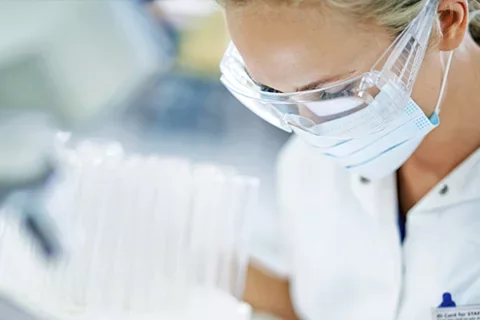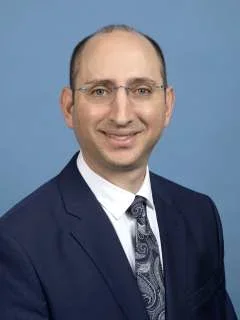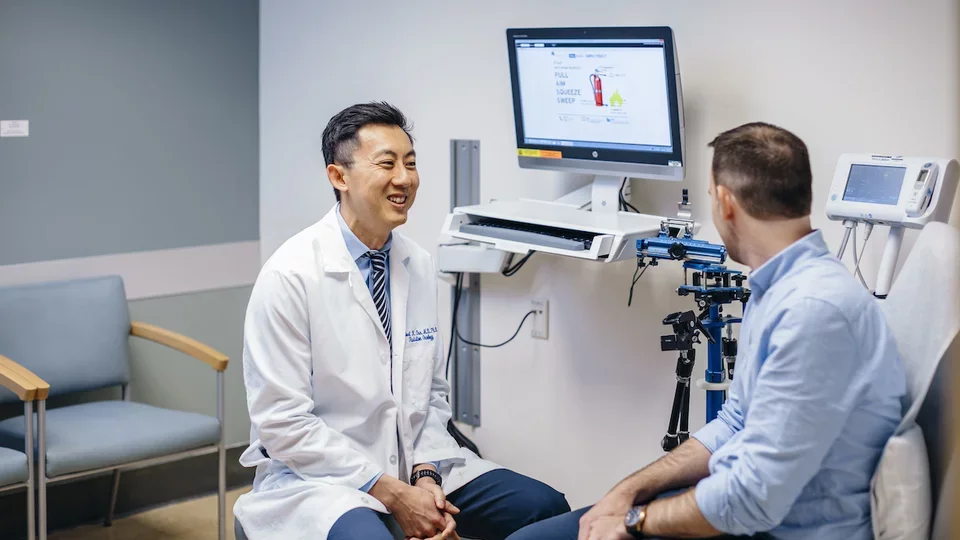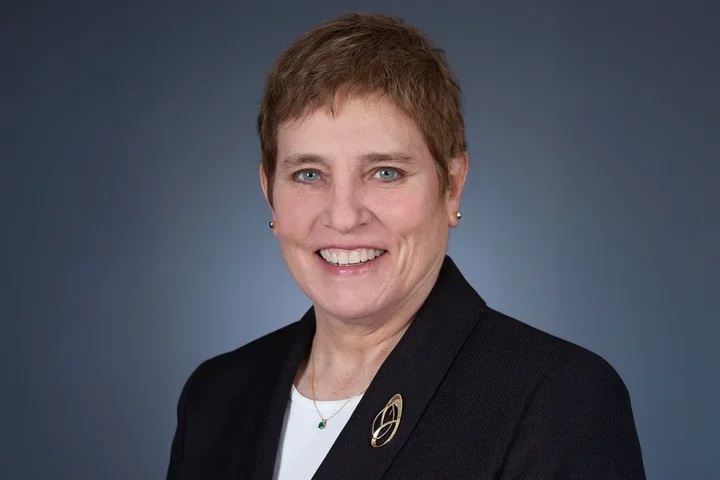What Is an Infectious Disease Doctor?
Faculty Spotlight

A Day in the Life of Dr. Dan Uslan, Infectious Disease Doctor at UCLA Health
Dan Uslan, MD spends most of his time thinking about infections—specifically about preventing them.
An adult infectious disease physician by training, he serves as Chief Infection Prevention Officer for UCLA Health. He also teaches trainees about infectious diseases and participates in research on novel infection control strategies and cardiac and endovascular infections, among other topics.
Infections can affect any part of the body and any person in the world. This keeps an infectious disease doctor’s work dynamic and varied.

“I love the diversity of what we see,” Dr. Uslan says. “Every day is different. Every patient is different. Even when the same bacteria or fungus causes an infection, there’s a lot of subtlety and variation in how we diagnose and manage patients.”
Specialists in other fields may find themselves looking at the same condition over and over again. An infectious disease doctor’s typical day might involve twenty patients, each with a different condition that requires a distinct approach to treatment.
What Does an Infectious Disease Doctor Do?
Broadly speaking, infectious disease doctors diagnose, treat, and help prevent the transmission of illnesses caused by pathogens, such as viruses or bacteria.
The wide-ranging scope of infectious disease requires a broad clinical practice. These physicians focus on all parts of the body, and their patients can be anyone from anywhere. They treat infections such as meningitis or complex surgical infections, tuberculosis, human immunodeficiency virus (HIV), and countless other cases.
These physicians may focus on either pediatric or adult patients and further specialize in one of many niches within adult infectious disease, including:
HIV medicine
These specialists operate as primary care doctors for people living with HIV. They oversee the patient’s care, handling not only infections but also any other medical concerns and illnesses that arise.
Travel and tropical medicine
These specialists help healthy people preparing to travel reduce their risk of developing an infection. They also help diagnose and treat travelers who return from trips with unexplained conditions, such as fevers or rashes.
Transplant infectious disease
Transplant ID specialists focus on the complex infections often seen in immunocompromised patients undergoing organ transplantation, which present unique issues in diagnosis, management, and prevention.
Infection prevention
These specialists work on a systems level to develop and implement interventions to control and prevent infection transmission and potentially prevent infections from developing in the first place.
“I see myself almost as a physician to the entire health system because I look for patterns of infection within our facilities, develop policies and procedures, and advise healthcare teams on topics as varied as handwashing and the sterility of surgical instruments.”
Infectious diseases specialists proactively think about answers to an overarching question: How do you prepare to deal with the unknown?
“The field of infectious diseases is probably the only field in medicine where we see new diseases all the time,” says Dr. Uslan.
“To handle what no one has ever heard of before, we’re constantly learning and evolving because our field is always evolving.”
Planning and preparation can mean all the difference when a hypothetical unknown becomes an unprecedented reality.
In the early days of the COVID-19 pandemic, the medical community turned to infectious disease specialists for advice on what to do and what precautions to take. Like everyone else, they didn’t know much about this specific virus, but they knew how to handle a novel virus in general.
FAQ: Infectious Disease Focus Areas
What Is Clinical ID?
Clinical infectious disease doctors diagnose and treat patients who have contracted illnesses caused by pathogens, such as viruses or bacteria.
What Is Pediatric ID?
Pediatric infectious disease doctors diagnose and treat children who have contracted illnesses caused by pathogens, such as viruses or bacteria.
What Is Travel Medicine?
Travel medicine is an infectious disease subspecialty concerned with helping travelers prevent and reduce their risk of contracting infections during trips and also caring for patients who develop unusual symptoms after returning.
Why Would Someone Be Sent to an Infectious Disease Doctor?
Dr. Uslan says practitioners will generally consult and/or refer patients to infectious disease doctors for one of two reasons:
1) To help diagnose a suspected infection.
This is especially true in mysterious or particularly complex cases.
Dr. Uslan says infectious disease doctors operate like medical detectives. They look at clues from a variety of different sources—including the patient’s history, lab results, physical examinations, and potential exposures—and use their expertise to integrate everything into a diagnosis.
“Infections are mostly very treatable,” he says. “It can be extraordinarily rewarding on a personal and intellectual level to make that diagnosis and see that patient get better.”
2) To assist with treatments.
Other specialists may require infectious disease expertise to determine an optimal treatment plan for a patient.
“There’s a lot of complexity around antibiotics,” says Dr. Uslan. “There are many varieties, the dosing can be complicated, and selecting which ones to use on which infections can be challenging.”
Frequently consulted, infectious disease doctors typically work closely with many other specialists across the entire care delivery spectrum.

How to Become an Infectious Disease Doctor
Dr. Uslan says strong candidates for this field will usually be inquisitive, detail-oriented, and passionate.
Aspiring infectious disease doctors should expect to complete medical school, residency training in either internal or pediatric medicine, and an infectious disease medical fellowship.
Dr. Uslan started his journey to becoming an infectious disease doctor at a much earlier age than most. He was only 6 years old when he and his father took a life-changing class at the California Science Center in Los Angeles.
“The class was all about microbes and how you can make food with them,” he remembers. “We made sourdough bread, yogurt, and sauerkraut. I thought it was fascinating that these microscopic things you couldn’t even see could, through fermentation, change how something tastes.”
From that moment on, he was fascinated with the wide world of microbiology.
He considered other specialties during medical school, but those explorations simply reaffirmed his love of microbiology and his desire to become an infectious disease doctor.
He advises any student considering specializing in this field to spend time with infectious disease doctors and work in microbiology laboratories.
“We’re a really fun group, and we love to teach,” he says, adding that he found it invaluable to connect with mentors and participate in research projects during medical school and residency.
Aspiring infectious disease physicians might also consider doing clinical rotations at a variety of sites and facilities.
“Infectious diseases affect everyone—young, old, rich, poor, etc. Diversifying the training experience can be very helpful,” he says. “Students should see how infections present similarly and differently across the population.”
Training at a range of sites can also help prepare students to care for patients while also navigating complex healthcare systems.
Dr. Uslan says that far too often, the people most vulnerable to infections are also vulnerable within the healthcare system—those experiencing homelessness, for example. Learning the ins and outs of the system during training may help mitigate frustration down the road.
How Much Does an Infectious Disease Doctor Make?
According to Medscape compensation data, the average annual infectious disease doctor salary in the U.S. is $260,000.
Infection Prevention Week
Infection Prevention Week takes place annually from October 15 to October 21. Dr. Uslan’s take-home message for anyone hoping to reduce their risk of infection is simple but powerful.
Wash your hands.
“We’ve known the critical importance of handwashing for nearly 200 years,” he says. “We’ve made incredible advances in how we diagnose and manage infections, but the single most important step healthcare workers and patients can take to prevent infections remains handwashing.”



